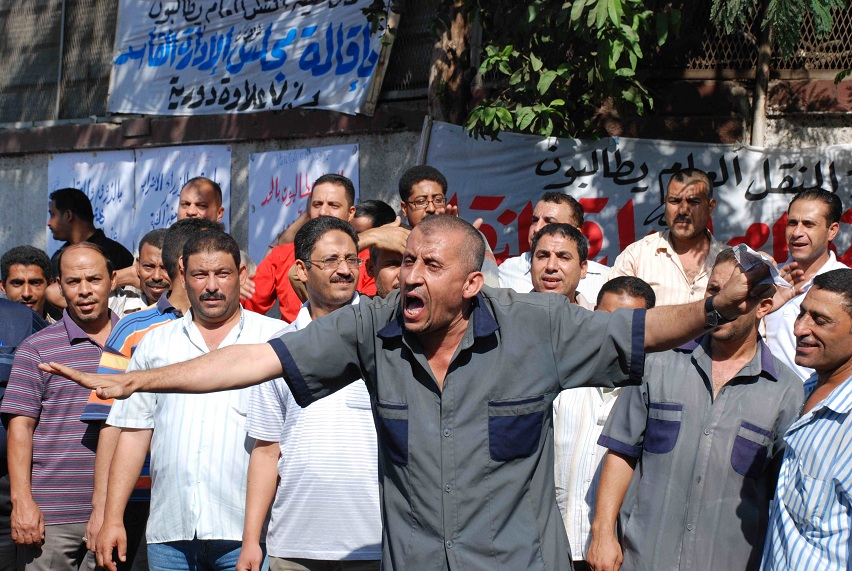CAIRO: Believing that the understanding of family and youth in Egypt, Palestine and Lebanon should be an integral part of policy making and reform debates, a group of scholars and researchers met recently to share and discuss their findings on these two subjects, in addition to religions, migration and domestic labor.
Fifteen scholars from various universities, NGOs and research foundations form the Arab Families Working Group (AFWG), whose research focuses on youth and families in Palestine, Lebanon and Egypt, and their diasporas in the US and Canada.
“We are working on answering key questions critical to the understanding of family and youth in those countries and trying to approach them in ways that haven’t been addressed before in order to have an impact on the environment and long-term policy implications, said Suad Joseph, founder and facilitator of AFWG, based in UC Davis, US.
“Families are pivotal social units that have been largely absent from recent policy and reform debates, she said.
Palestine, Lebanon and Egypt emerged as the focus of AFWG’s work because of the critical mass of ethnographic and historical studies available on these countries.
Barbara Ibrahim, member of AFWG and founding director of the John D. Gerhart Center for Philanthropy and Civic Engagement at the American University in Cairo (AUC), conducted research titled “Youth and Social Exclusion in Egypt.
Her research discussed the culture of exclusion towards youth in the Arab world s most populous country. “They are excluded economically, because there are no jobs for them, and they are excluded socially, because they are not allowed to take the lead in society, she explained.
In public discourse, the youth are either “doing nothing or are vulnerable to extremist political organizations, which leaves no place for them in contemporary society. However, Ibrahim’s research examines a recent phenomenon whereby youth are founding and leading social services organizations, such as Resala, Alashanek ya Balady and Nahdet El Mahrousa, all of which have been initiated by fresh university graduates in Cairo.
The research focuses on Resala, which is growing rapidly and now comprises approximately 70,000 members.
Because it combines both religion and public service, the organization is falsely thought to include only religious extremists – a stereotype Ibrahim refutes.
“These are middle way pods for young people; they want to be good Muslims and have a good Muslim society . they’re building the Muslim umma [nation] brick by brick.
Members also find it a good venue for social networking and some even have other objectives such as listing these activities on their resume. Some people may think “Maybe someone will notice me and give me a job, Ibrahim explained.
“These are arenas which youth use to put meaning to their lives . they’re figuring out how to be a public self, she said.
Another research on Egyptian youth is “A Genealogy of Youth in Egyptian Public Discourse in which Omnia El-Shakry, assistant professor at the department of history at the University of California, places contemporary problems of today’s youth within their historic context.
“The notion of the [youth crisis] can be traced back to the mid 1970s; [in] cinematic and theoretical representation [they’ve been shown as] apolitical consumers, immortal, for example always being engaged in urfi marriages, and there is an absence of a cultural identity, said El-Shakry.
The research also examines the various ways in which youth have been mobilized to further satisfy, or contest, the educational, scientific or religious agenda which can be traced as far back as 1936, according to El-Shakry.
Other researches discussed were “Displaced Arab Families: Iraqi Refugees in Lebanon through which Jihan Makhlouf, from the Department of Public Health at the American University of Beirut, “gives them a voice because she believes they are underserved and persecuted.
Joseph looked at the migration of whole families from Lebanon to the United States, and uncovered surprising patterns. For example, she found that often families are the ones who support their emigrant members, rather than vice versa, to help them buy homes or start a business.
Another interesting finding, Joseph said, is that fathers were keener than mothers on maintaining the Lebanese identity with their children. “The male is the protector of [ethnic] identity, she explained.
AFWG researchers also discussed means of bringing on change through their research.
“As academics we tend to publish in academic journals in our field which the people don’t have access to . we need to translate them from the academic jargon and communicate them to the general public, particularly policy makers, practitioners and stake holders, said Makhlouf.


